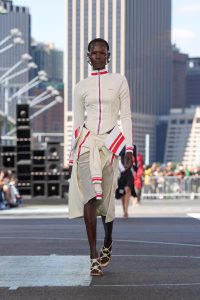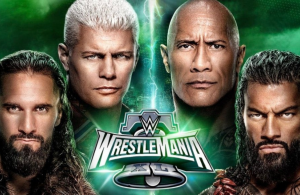 Candace Chambers
Candace Chambers
Staff Writer
Many times, breast cancer is associated with women and the journey they often endure through treatment, the loss of hair, and the start of a new beginning or the ending to their pains and struggle. But, even though breast cancer will affect about 1 in 8 US women in their lifetime, men are not exempt from the disease.
In October, football teams often express their support for Breast Cancer Awareness with the wearing of pink socks, gloves, or other pink paraphernalia. Groups often release pink balloons at sporting events to remember those who have lost their lives in their fight against breast cancer.
Susan G. Komen for the Cure, a breast cancer organization, reports that, “In the U.S., about 2,000 cases of breast cancer are diagnosed in men and more than 400 men will die from breast cancer each year.”
Breast cancer in men is rare and makes up less than 1% of all breast cancers. According to the National Cancer Institute at the National Institute of Health, “men at any age may develop breast cancer, but it is usually detected (found) in men between 60 and 70 years of age.” Although many college students are younger than these ages, it is still important for young men to be knowledgeable of their bodies.
Since males have breast tissue, they can develop breast cancer. Male breasts are made up of small undeveloped breast tissue and a small amount of connective tissue behind the nipple. Due to puberty, male hormones stop the growth of breast tissue, but cancer can develop in the developed tissue that grew before puberty. The most common type of breast cancer in men, as in women, is Infiltrating Ductal Carcinoma, which occurs when cancer has spread beyond the cells lining ducts in the breast.
Some causes for breast cancer in men include exposure to radiation, high levels of estrogen, a family history of breast cancer, and obesity. It is more likely for the cancer to spread because of men’s small amount of breast tissue, which causes the cancer to spread to more parts of the body. Men are also less likely to report unusual symptoms. These signs include lumps or hardening of the breast, redness of the skin of the breast, an inverted nipple, or nipple discharge. The cancer is often in a form of a firm, non-painful mass just below the nipple with an average size of 2.5 cm.
Treating breast cancer in men is the same as in women and a radical mastectomy is the most common approach. Breast cancer in men is often easier to detect with sight and touch, than in women.
As with other forms of prevention, early detection is best. Susan G. Komen for the Cure suggests that, “the key to beating cancer is finding it early and getting treated right away.”
These JSU male students agree that men should be aware of what occurs in their body.
Derrell Jordan, a senior physical education major from Gulfport, Miss. was aware that breast cancer can occur in men and believes that staying active is essential in maintaining proper health.
“In my opinion, they (men) should be aware because they never know what is going to happen. They have to work out, exercise, stay in shape, and stay active.”
Anthony Gilvert, a senior computer technology major from Chicago, Ill. said “In the long run, it could be something that’s hereditary. It could be something more severe than you think. For example, men can get breast cancer. If you don’t get that checked out soon enough, it could be worse and it could have been prevented if you had went to the doctor.”
Brandon Tarrio, a senior physical education major from Jackson, Miss. agreed.
“I feel like men should be aware because you never know, anything could be wrong with your body. Like cancer, it’s a one percent chance, but you never know who can be in that one percent. So you should go ahead and get checked out, to make sure you’re not a part of that one percent. Not just getting checked for breast cancer, but for anything. It’s just best to get checked out period,” said Tarrio.
Men wear pink for breast Cancer prevention
More from VarietyMore posts in Variety »
- NFL selects Kendrick Lamar as Superbowl LIX headliner, sparking mixed reactions
- Bold innovation and art merged during New York Fashion Week 2024
- Movie release celebrates Coraline’s 15th anniversary
- Shrek 2 returns to theaters for 20th anniversary commemoration
- WrestleMania 40 breaks records as the greats return to finishes stories





Be First to Comment